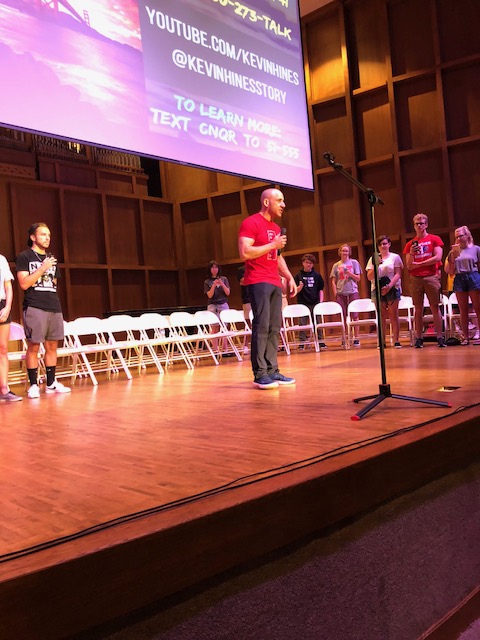“There are no stupid questions.”
But maybe we’re asking the wrong questions.
We’ve all heard the quote before – usually in a classroom setting, meant to encourage students to ask any question so that they do not go through the entire period wondering what “corban” means (a word I had to look up today).
I agree with the above statement – there are no stupid questions. Any time someone is trying to learn and asks a question to clarify and attempt at clearer communication or understanding, the question is not stupid.
I do think there are annoying questions. Those times when people aren’t listening and then ask someone to repeat – not because they didn’t hear but because they weren’t paying attention or didn’t come prepared – that’s an annoying question. (Just a side note – I’ve been guilty of that before. In fact, earlier this week I completely blanked when I scanned an email and went in a completely different direction because I didn’t take the time to read. Happens to everyone. Still annoying.)
Yet, when we ask the same questions over and over again and don’t receive a response, then maybe we need to reevaluate the question.
Earlier this week I had the pleasure of hearing Kevin Hines speak. You can read about him here. When he was seventeen he was diagnosed with Bipolar disorder, and at nineteen he jumped off the Golden Gate bridge to end his life by suicide – and he survived. He has been on a path to wellness for many years and is a fantastic motivational speaker and advocate for mental health and wellness. His speech was empowering, funny, thought-provoking, and touching. I haven’t read his book yet, but it has been added to my list.
There were many things I loved about his talk. I loved how encouraging he was, reminding everyone that they are loved. He encouraged people to reach out to people who are hurting. He was compassionate and caring. He reminded people that our thoughts do not have to become our actions. I could try to summarize everything he said, but I’d encourage you to read his book and visit his website, because he says it much better than I could.
Ending suicide is a topic that has been important in this community. Too many people have been dying by suicide recently. I am part of a Zero Suicide Initiative to educate people on mental health, encourage people to seek help, and try to offer hope to a world that is hurting. There is help. People care.
One piece that stuck out to me (among many) was that he mentioned that after someone dies by suicide, or attempts, the first question is “Why?” When he was pulled from the water after jumping, the Coast Guard officer asked him, “Why did you do it?”
I think that’s a common question. We want to know why – because, maybe, if we know the answer to “why” we can “fix” the issue. Yet, it isn’t that simple. He said the more accurate question is how do we move forward from here? How can we learn to live? How can we find hope and make it through the pain? I took this to be a question to ask of people who have lost loved ones and those who are battling mental illness – how to move forward (not forget – he reminded us – grief is an ongoing process) and celebrate their lives; how to recognize the pain and realize one is not alone. This is a shift in our thinking. That “why” question is still unanswered. Can we move on to another question and leave the mystery? Does that leave us unsettled?
Sometimes we have to recognize that questions are unanswerable. “Why did you eat that penny?” my sister-in-law asked her child. I think we all know there was no logical answer behind that one. She just encouraged the child not to do it again – how to move forward.
“Why is the church dying?” This is a common question asked. Usually followed by “how can we find new members?” Maybe we need to stop gripping what we have so tightly, and open ourselves up to possibilities – moving forward with what we have, who we have, and how to live abundantly.
Life abundant is something we all need.
Some questions are never going to have answers. What is the meaning of life? Well, that might be answered, and if it is, it is different for everyone. Maybe asking “what is my purpose?” might have better results.
Are you finding the answers to your questions?

